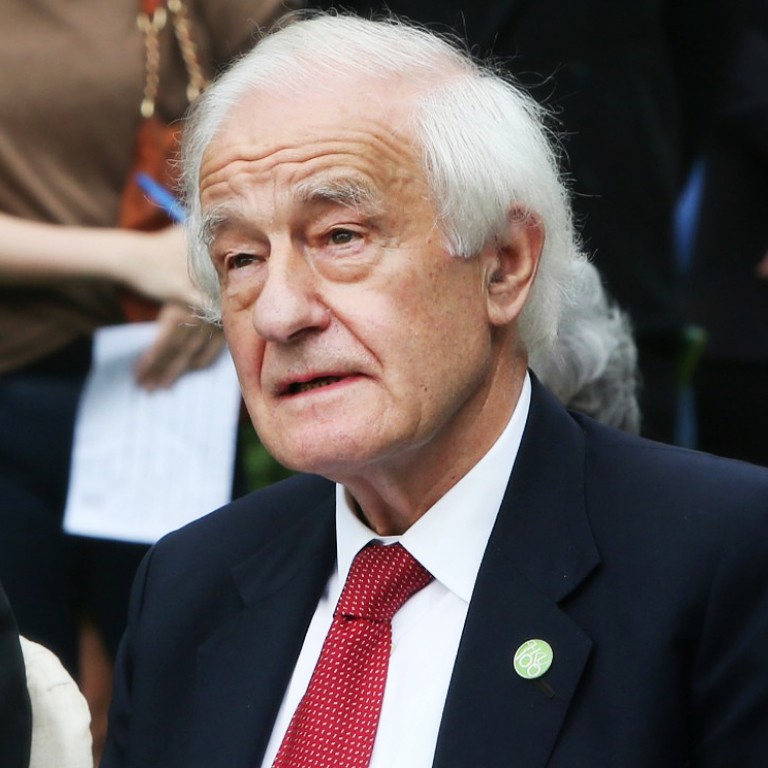
British lords back Hong Kong's policing methods
'Largely proportionate' actions defended in debate at House of Lords
Britain's peers have defended Hong Kong's policing methods, describing them during a House of Lords debate yesterday as "largely proportionate".
Without directly mentioning alleged police abuses, House of Lords' spokesman William Wallace, speaking on behalf of the government, also defended the city's rule of law, saying it had been upheld.
Wallace said Britain was mindful of "reform, consultation [and] slow progress" as the preferred option rather than "the politics of the streets" as happened in the Arab Spring.
Former Hong Kong governor David Wilson, who led the British side of a working group tasked with drafting the 1984 Sino-British Joint Declaration, agreed that recent policing had been proportionate, and gave credit to officers.
Wilson, who served as governor from 1987 to 1992, said he had "no valid evidence" that the mainland had breached the Joint Declaration.
Wallace also revealed that British Prime Minister David Cameron had spoken to Vice-Premier Ma Kai last month and had also discussed Hong Kong's constitutional development with Premier Li Keqiang in June, when the Chinese leader visited London. He said Beijing's white paper on its policy towards Hong Kong had not undermined the city's judicial independence nor breached the Joint Declaration.
Richard Luce, who initiated the debate in the upper house of Parliament, said Britain had "an obligation, if not a moral one" to Hong Kong citizens.
Before the Lords debate, Cameron had said that democracy involved real choices and that the UK should stand up for those rights in Hong Kong. "Rights and freedoms, including those of person, of speech, of the press, of assembly, of association, of travel, of movement, and, indeed, of strike … These are important freedoms, jointly guaranteed through that Joint Declaration and it's that which, most of all, we should stand up for," he said.
A debate will also take place in the lower chamber, the House of Commons, next Wednesday, days ahead of Leung Chun-ying's first official visit to London since becoming chief executive in 2012.
Neither of the debates has a legally binding impact on the British government, though an investigation by Parliament's Foreign Affairs Committee into the implementation of the Joint Declaration may factor in London's future policies and stance towards Hong Kong.
Lawmakers on the committee are planning a visit next month. Secretary for Justice Rimsky Yuen Kwok-keung has warned this would amount to interference in the city's affairs.
The United States raised concerns about police actions and urged a "swift, transparent and complete investigation" after videos emerged of police allegedly beating a protester.
Beijing rejected criticism from Britain and the US, insisting the rights of Hongkongers had been fully guaranteed since the city's return to the mainland in 1997.

